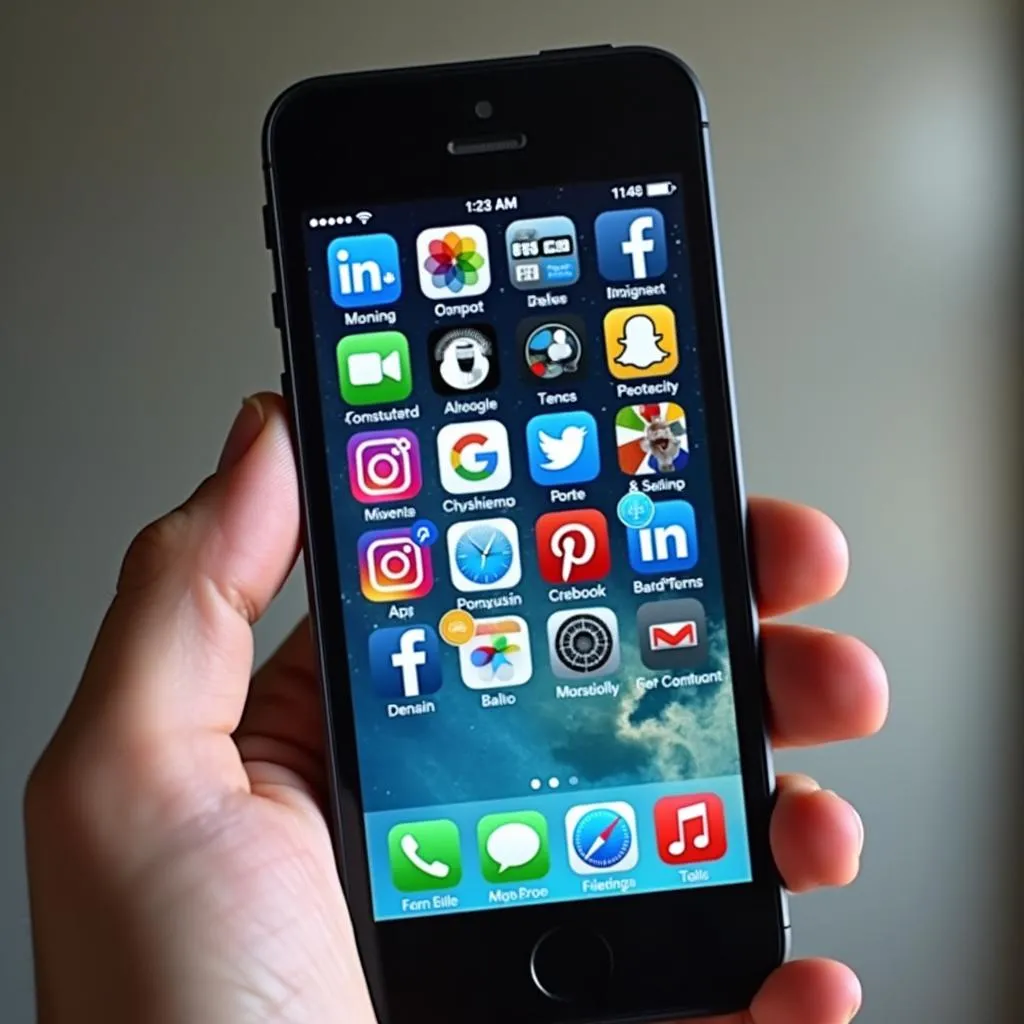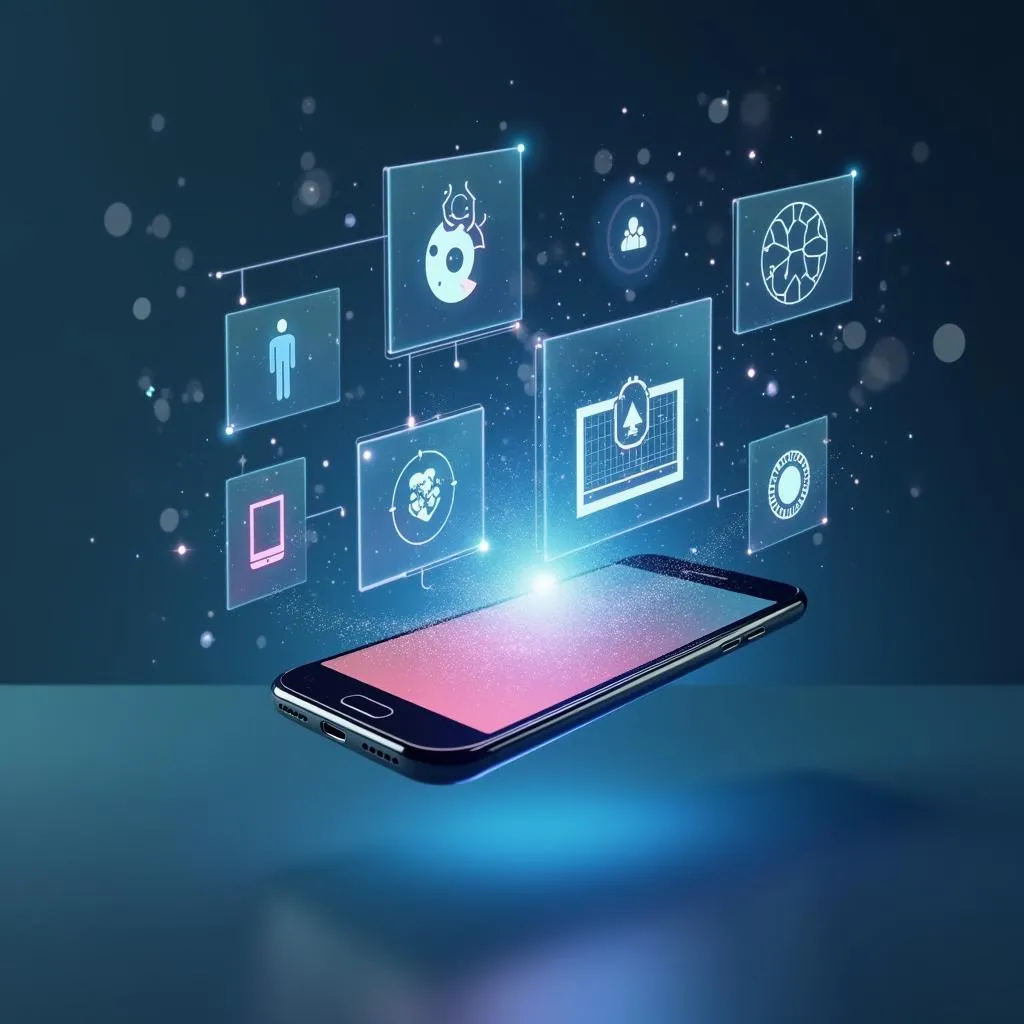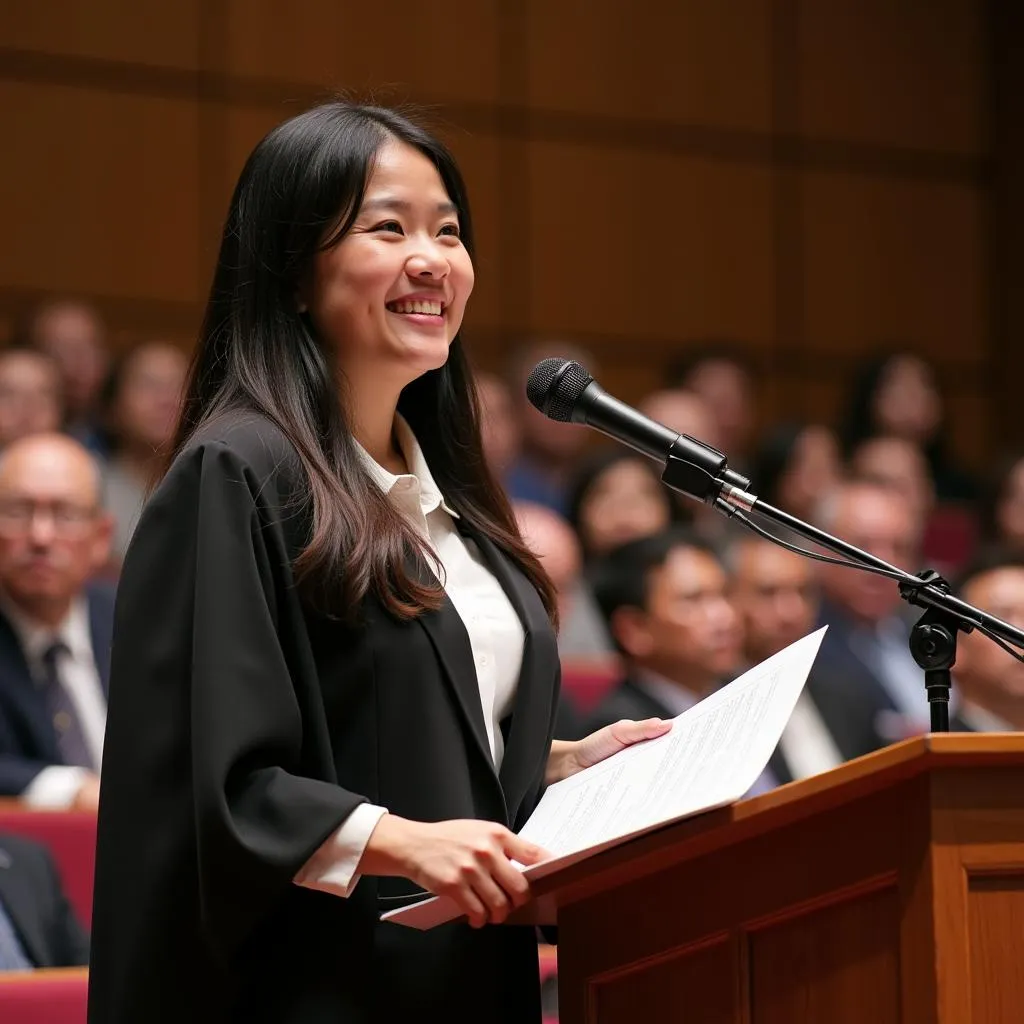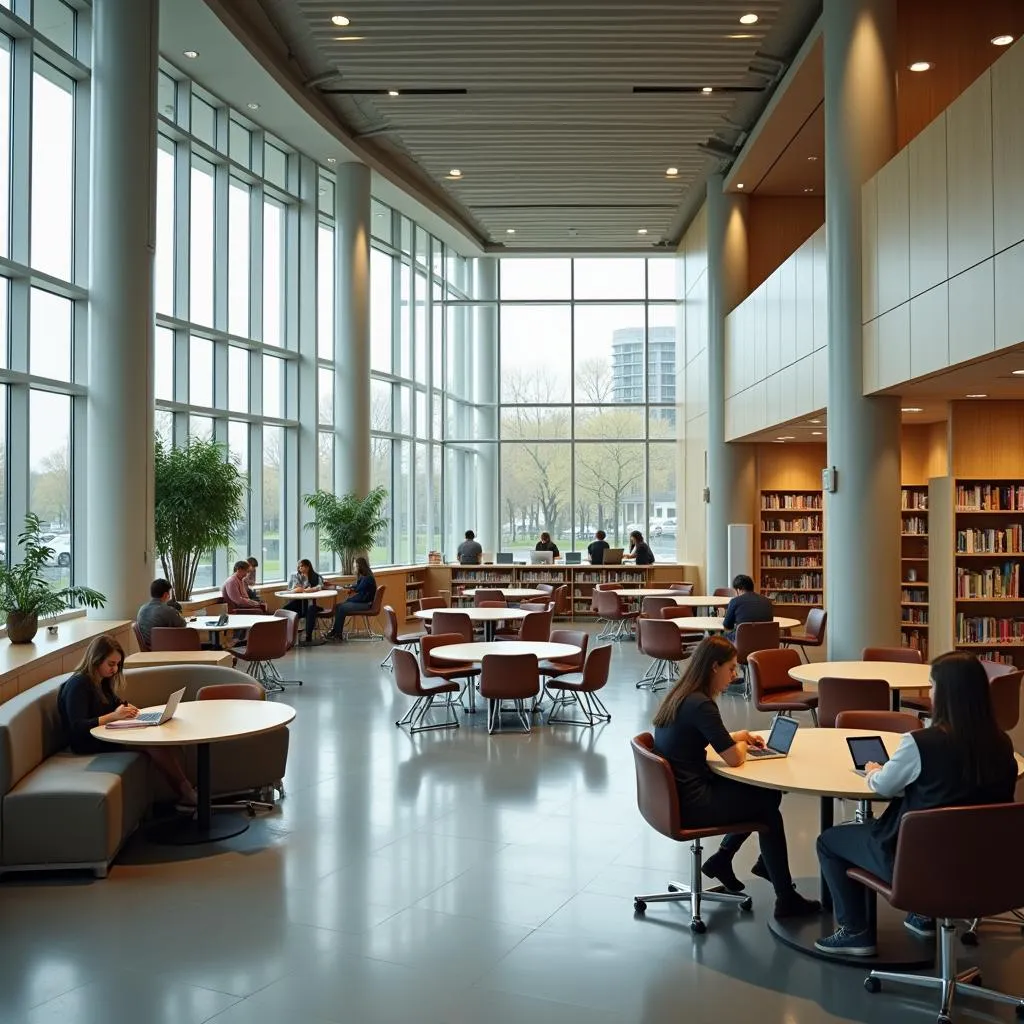The topic of describing an app that has made your life easier is a common and relevant one in IELTS Speaking tests. It reflects the growing influence of technology in our daily lives and provides an excellent opportunity for candidates to showcase their language skills while discussing a familiar subject. This topic has appeared frequently in past IELTS exams and is likely to remain relevant in future tests.
Nội dung bài viết
Part 1: Introduction and Interview
In this section, the examiner may ask you some general questions about apps and technology. Here are some potential questions and a sample answer:
Examiner: Do you use many apps on your phone?
Candidate (Band 8-9 response): Absolutely, I’m quite reliant on various apps in my daily life. From productivity tools like calendar and note-taking apps to entertainment platforms and social media, I’d say my smartphone is practically an extension of myself. I’m particularly fond of apps that help me stay organized and manage my time effectively.
 Various apps displayed on smartphone screen
Various apps displayed on smartphone screen
Part 2: Long Turn
Cue Card
Describe an app that has made your life easier
You should say:
- What the app is
- What it does
- How you use it
- And explain why it has made your life easier
Sample Answer (Band 8-9)
I’d like to talk about an app that has truly revolutionized the way I manage my daily tasks and increased my productivity significantly – Todoist.
Todoist is a powerful task management and to-do list application that helps users organize their personal and professional lives. It’s essentially a digital planner on steroids, allowing you to create, organize, and prioritize tasks across various projects and categories.
The app’s functionality is quite comprehensive. You can create tasks, set due dates and reminders, assign priority levels, and even collaborate with others on shared projects. What I find particularly useful is its natural language processing feature, which allows me to quickly add tasks by typing something like “Submit report every Friday at 3 PM” and the app automatically sets the correct recurring schedule.
I use Todoist religiously throughout my day. In the morning, I review my tasks for the day and week ahead. As new responsibilities come up, I quickly add them to the app, assigning them to the appropriate project or category. The app’s cross-platform synchronization is seamless, so whether I’m on my phone, tablet, or computer, my tasks are always up-to-date.
This app has made my life significantly easier in several ways. Firstly, it has dramatically reduced my mental load. Instead of trying to remember everything I need to do, I can offload that information into Todoist and trust that I’ll be reminded at the right time. Secondly, it has improved my time management skills. The ability to see all my tasks at a glance helps me prioritize effectively and make the most of my time. Lastly, the satisfaction of checking off completed tasks gives me a sense of accomplishment and motivates me to stay productive.
In essence, Todoist has become my external brain, helping me stay organized, focused, and efficient in both my personal and professional life. It’s not an exaggeration to say that it has transformed the way I approach my daily responsibilities.
Follow-up Questions
Examiner: How do you think apps like this one affect our reliance on technology?
Candidate (Band 8-9 response): That’s a thought-provoking question. While apps like Todoist undoubtedly increase our reliance on technology, I believe the benefits outweigh the potential drawbacks. These tools enhance our productivity and cognitive abilities, allowing us to offload routine mental tasks and focus on more complex problem-solving. However, it’s crucial to maintain a balance and not become overly dependent on technology for basic functions. We should view these apps as aids to our natural abilities rather than replacements for them.
Examiner: Do you think there are any downsides to using productivity apps?
Candidate (Band 7-8 response): Yes, I think there can be some potential downsides. One concern is that people might become too reliant on these apps and struggle to manage their tasks without them. There’s also the risk of information overload, where having all your tasks constantly visible might lead to stress or anxiety. Additionally, the time spent managing and organizing tasks in the app could potentially be counterproductive if not done efficiently.
Part 3: Two-way Discussion
Examiner: How do you think app developers can ensure their apps are truly useful and not just a distraction?
Candidate (Band 8-9 response): That’s an excellent question that touches on the core of user-centric design. I believe app developers need to focus on solving real problems rather than creating solutions in search of a problem. This involves extensive user research to understand pain points and needs. They should prioritize functionality over flashy features and ensure the app integrates seamlessly into users’ daily routines. Moreover, implementing features that promote mindful usage, such as usage statistics or gentle reminders to take breaks, can help prevent the app from becoming a distraction. It’s about striking a balance between utility and user engagement without falling into the trap of addictive design.
Examiner: In what ways do you think apps might change in the future?
Candidate (Band 7-8 response): I think we’ll see a significant shift towards more personalized and intelligent apps in the future. With advancements in AI and machine learning, apps will likely become more intuitive, anticipating our needs based on our behavior patterns. We might also see greater integration between different apps and services, creating a more seamless digital experience. Additionally, as concerns about digital wellbeing grow, future apps might incorporate more features to help users maintain a healthy relationship with technology.
 Futuristic concept of mobile apps
Futuristic concept of mobile apps
Key Vocabulary and Phrases for High Scores
-
Revolutionize (verb) /ˌrevəˈluːʃənaɪz/ – to change something completely and fundamentally
Example: The internet has revolutionized the way we access information. -
Comprehensive (adjective) /ˌkɒmprɪˈhensɪv/ – including or dealing with all or nearly all elements or aspects of something
Example: The app offers a comprehensive suite of features for project management. -
Seamless (adjective) /ˈsiːmləs/ – smooth and continuous, with no apparent gaps or spaces between one part and the next
Example: The app provides a seamless experience across all devices. -
Mental load (noun phrase) /ˈmentl ləʊd/ – the amount of mental effort and memory required to accomplish a task
Example: Using a to-do list app can significantly reduce your mental load. -
Offload (verb) /ˌɒfˈləʊd/ – to remove or separate (something) from something else
Example: I offload all my tasks into the app so I don’t have to remember them. -
User-centric design (noun phrase) /ˈjuːzə ˈsentrɪk dɪˈzaɪn/ – an approach to design that focuses on the needs and wants of the end user
Example: The app’s success is largely due to its user-centric design philosophy.
Examiner’s Advice
To achieve a high score in the IELTS Speaking test when discussing apps or technology:
- Use a wide range of vocabulary related to technology and its impact on daily life.
- Provide detailed explanations and examples to support your points.
- Show your ability to discuss both advantages and potential drawbacks of technology.
- Use complex sentence structures and idiomatic expressions where appropriate.
- Practice speaking about various apps and their features to build fluency on this topic.
- Be prepared to discuss broader implications of technology use in society.
Remember, the key to success in the IELTS Speaking test is not just about what you say, but how you say it. Aim for clarity, fluency, and depth in your responses.
Describe an unusual event, holiday, or trip you experienced can also be an interesting topic to practice, as it allows you to showcase your narrative skills and use of past tenses, which are equally important in IELTS Speaking.


